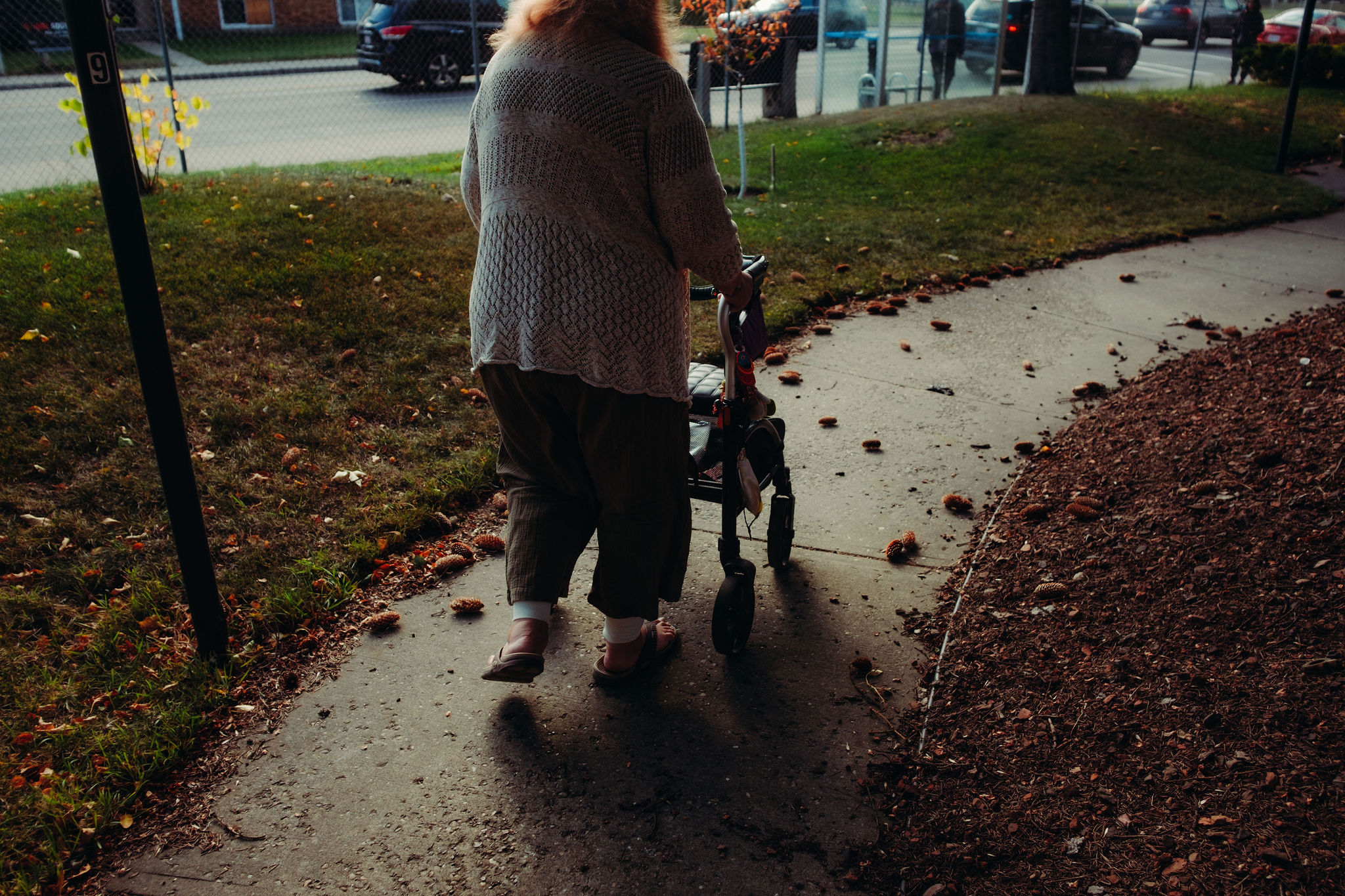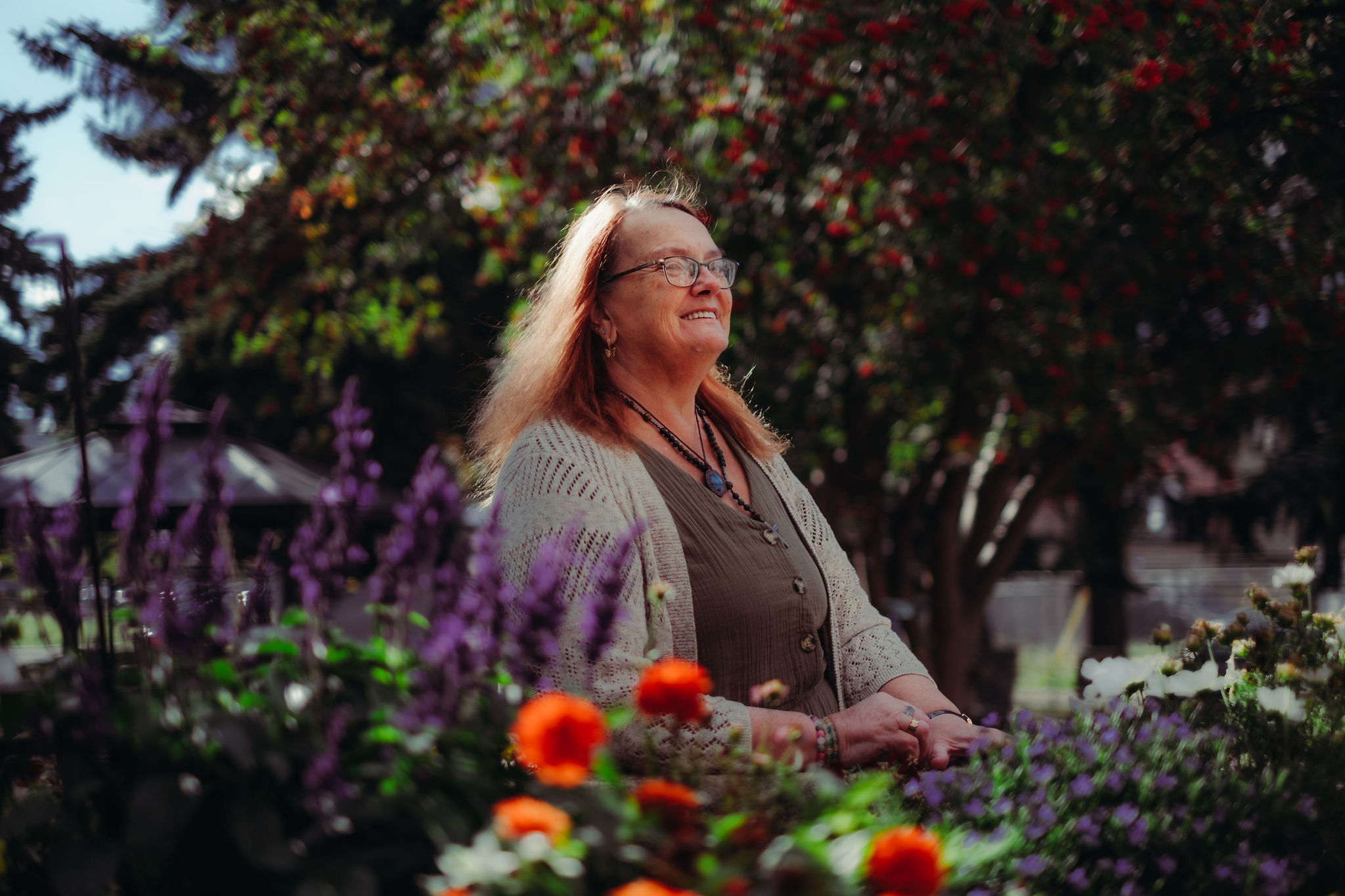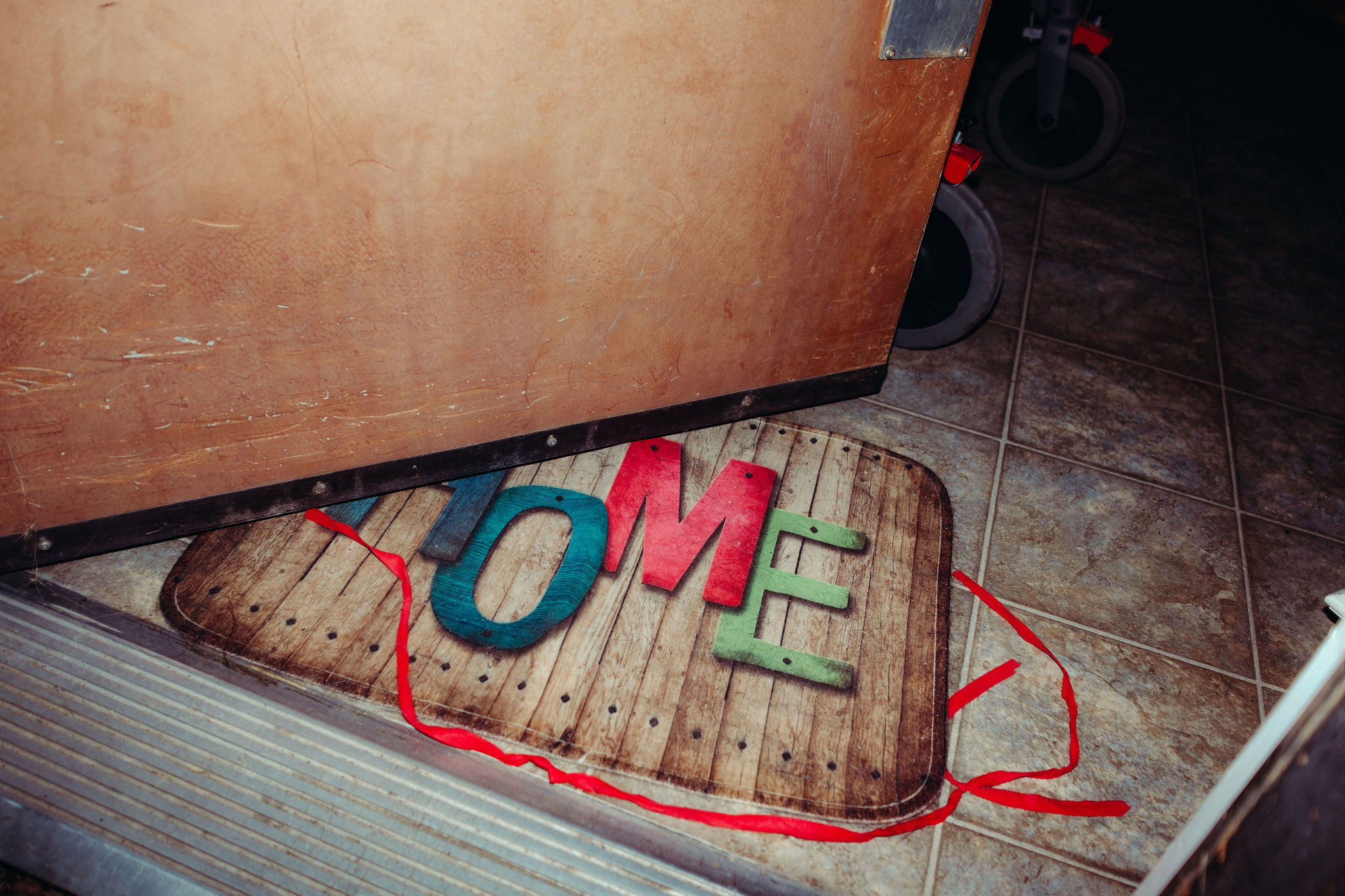This is one of 12 interviews conducted with various Edmontonians about their experience with the housing system. It has been edited for clarity and length. Read more about why and how Taproot embarked on this series.
Bernice Westfall is a resident of Pioneer Place, a seniors' residence run by Operation Friendship Seniors Society at which subsidized rents are set at 30% of the resident's income. She was raised on a farm southeast of Edmonton, farmed with her husband near New Norway, and operated an ATB agency in Ferintosh for 20 years.
Can you tell us a bit about your living situation now?
It's a bachelor suite, that's what I qualified for, and coming from a house to a place where it's got your kitchen, your living room, and your bedroom all in one, it was a shock, but it forced me to prioritize. I had to downsize, and that was hard because of the memories, you know. Everything still hurts. Twelve years I've been in here now, and when I look back, there was good times, there was sad times, there was hard times, but that's what makes your life. Everybody in here has a different story, and you make it work, you know, and you move forward instead of looking back.
But you started out your life in the country?
The first farm was out by Rolly View. My dad, he loved cattle, and we had milk cows. Us kids, after school was out, we all went out and we all helped. Seven of us, and we all worked hard, and it didn't matter, even in the wintertime you went out, you did the chores. I just loved being out there, and the freedom. Running around chasing the calves, or picking rocks, it was hard work, but it was still fun. When you were threshing, Mom would bring the meal out to the field and we'd sit and have a break, and everybody ate together.
Then when I got married, I moved to New Norway, and we had hogs, 1,500 or 2,500 hogs. (My husband) worked off the farm, too. He'd say, "Are you OK to feed the hogs?" So, it was feeding, grinding, helping him sort them. With the grain farm, then it was driving the truck and hauling the grain. I would never trade it, you know, with everything that's happened, I would not trade growing up on the farm.
How did you move from farming into business?
Because we were struggling, I took an H&R Block course, and I did income tax during the tax season. Then there was an ad in the paper for an agent in Ferintosh with ATB Financial, and I said to my sister, there's the perfect job for me.
Everything you do at a regular bank in the city I did by myself. I did investments. I helped seniors fill out their forms to make sure they were getting their pensions and their GIS and CPP. I helped them with their income tax, and I did deposits. I changed the agency from a small agency to a medium agency, and that was by building the customer base. Once you build that kind of rapport with the people, they get to trust you, and that's what it was based on, was on trust. A company across the street opened their shop and asked me if I would be able to handle the banking. I phoned (the ATB branch in) Camrose and I said, "I'm on my way in, I'm going to be speeding. I have a cheque for over $1,000,000, and I don't know what to do, so I'm bringing it to you." The police met me at Ross Flats, and they're going, "Bernice, why did you phone us?" I said because I was scared.

Pioneer Place resident Bernice Westfall goes for a walk near her Boyle Street home. (Jordon Hon)
Somewhere in there you had some personal challenges.
My husband left me. I was still on the farm, that's the quarter (section of land) that I ended up with from the divorce. I went into the bank and talked to them about me being able to keep the farm. For every $1.25 I made, $1.21 had to go to service the debt, and I just couldn't do it. So I bought some property in Ferintosh and had a cottage built. A little house on the Prairie, that's the best way to describe it. There were no doors, and I used curtains to separate the rooms. There was no basement. It was like an A-frame house, with a balcony off the top, and you looked out and you saw the lake, and you saw the fields of grain and the canola and the green, and you saw people working. What I dreamed my home would be.
I was at my son's wedding in St. Paul. I had hired somebody to work for me and she stole money from the bank, but because I had the contract, I'm the one that's responsible. And so, I lost the job, I lost the home, I lost my whole life. (The ATB manager) and the other fellow that came down, they said, "Bernice, we know this isn't you. We know you didn't do this. We can tell by the work, the way the work was done, that it wasn't yours." But I said I can't replace that money. The only thing I could do was declare bankruptcy. I felt like I was dishonest because this money is gone, and I can't replace it.
I had nothing, and my CPP was tied to my husband's, so I got a portion of his when he turned 65. So I went on. I've never been on assistance of any kind, and that was so humiliating, and made me realize what it's like, to have nothing, and depend on government, because I'd always been able to look after myself. After I lost my job, for the first five months, I lived on what I could make at garage sales, that was it. I didn't want to be known as somebody on welfare. That had a stigma to it.
You're forced to look at things a whole lot differently. Your attitude, everything changes. Because you're now one of those people. It was always, "What can I do to help them?" I was always helping, and now I'm one of the ones that is needing help.
I don't think the city realizes it; I don't think our mayor realizes how bad it is for a lot of seniors. We've worked all our lives and thinking that it's going to be our golden years, and it's not really golden years. If this wasn't a subsidized place, then I don't know where I'd be. I'd probably be one of the ones out on the street.
This interview was conducted on Sept. 17, 2024.


